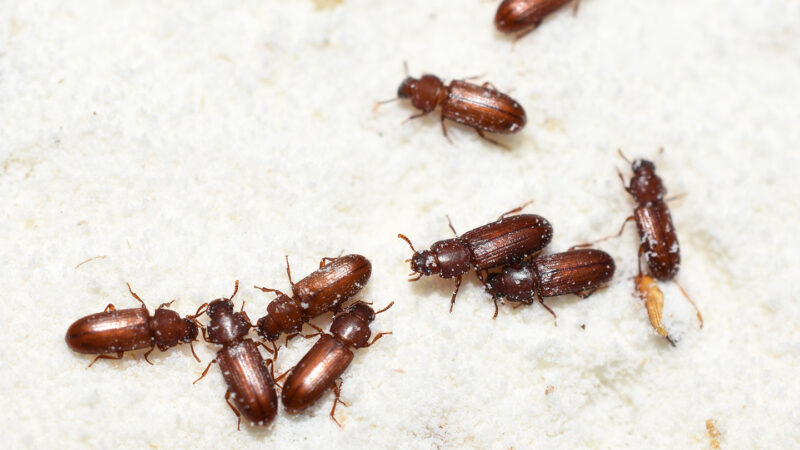How some beetles ‘drink’ water using their butts

Some beetles “drink” using their butts, and scientists are starting to understand how.
Red flour beetles, a major agricultural pest, open their anus to get water vapor in the air flowing into the lower gut and condensing on any poop there. The insects draw water out of the fecal material using special cells lining their lower digestive system, researchers report March 21 in Proceedings of the National Academy of Sciences.
This “amazing mechanism” could one day be exploited to make beetle-specific pesticides that could protect crops while safeguarding bees and other insects, says Kenneth Halberg, a comparative endocrinologist and physiologist at the University of Copenhagen.
Insect pests get into as much as 20 percent of the global food supply every year, destroying food and costing farmers money, the United Nations’ Food and Agriculture Organization estimates. Beetles are particularly pernicious. These insects can thrive in arid environments, including in supplies of wheat and other bone-dry crops. One way dry-adapted beetles survive is by recycling water out of their poop using the rectal complex, an organ near the end of their digestive system. But researchers didn’t know how the insects accomplished the feat.
Halberg and colleagues found that in red flour beetles (Tribolium castaneum), the gene Nha1 is more active in cells pockmarking the lining of the rectal complex than elsewhere in the body. Scientists have previously suggested that the rectal complex’s blisterlike cells were involved in sucking water out of material in the organ.
But “the paradox was that they don’t look like transporting cells,” says Michael O’Donnell, an insect physiologist at McMaster University in Hamilton, Canada, who was not involved with the research.
The new study may resolve that paradox. Nha1 produces a protein that pumps charged potassium particles across the cells’ membranes, Halberg’s team found. That may result in a buildup of the ions on the outside of the rectal complex, the researchers suspect.
Through osmosis, water will move toward areas with a high concentration of ions. So that pool of potassium could allow beetles to move water through the wall of the rectal complex and into the rest of the body.
Experiments confirmed that the insects opened their anuses in high humidity so water vapor could flow into the rectal complex. What’s more, beetles with Nha1 deactivated didn’t survive as well in dry conditions as normal beetles.
It’s not clear whether other beetles use a similar mechanism, Halberg says. But the finding emphasizes how “nature has its way of developing some quite interesting solutions to some very interesting problems.”
For all the latest Science News Click Here
For the latest news and updates, follow us on Google News.

